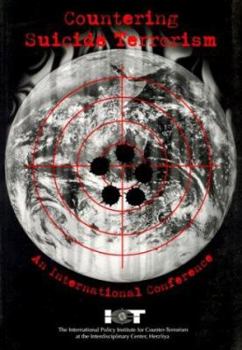Countering Suicide Terrorism: An International Conference
Many nations have been forced to contend with the phenomenon of suicide terrorism on almost a daily basis. Such diverse countries as Turkey, Sri Lanka, Israel, and the United States have all been targeted by terrorists who effectively used suicide terrorism against densely populated civilian and military targets. In this volume, academic experts and counter-terrorism professionals compare ways and means of countering the threat of suicide terrorism. Suicide terrorism constitutes an additional stage in the escalation of terrorist activity. In his ability to implement the attack at precisely the time and place where it will cause the maximum number of casualties and greatest damage, the suicide bomber is virtually guaranteed success. Even the least deadly of such attacks succeeds in striking a devastating blow to public morale. Suicide terrorism is all the more threatening because of the difficulties in confronting it, the large number of casualties, and the religious or ideological zeal it inspires. It is a phenomenon that often, though not always, goes hand in hand with religious extremism, which distorts religion in the service of political aims. In order to find ways of combating the phenomenon of suicide terrorism, the International Policy Institute for Counter-Terrorism held an international conference on the subject in February 2000 at the Interdisciplinary Center, Herzliya. The conference brought together academic experts and counter-terrorism professionals from all over the world in a multi-disciplinary venue. Lecturers included experts from Israel, the Palestinian Authority, Turkey, Sri Lanka, the United Kingdom, and the United States. The conclusion reached was that the phenomenon of religious and nationalist suicide terrorism is likely to become all the more acute in the coming years.





















